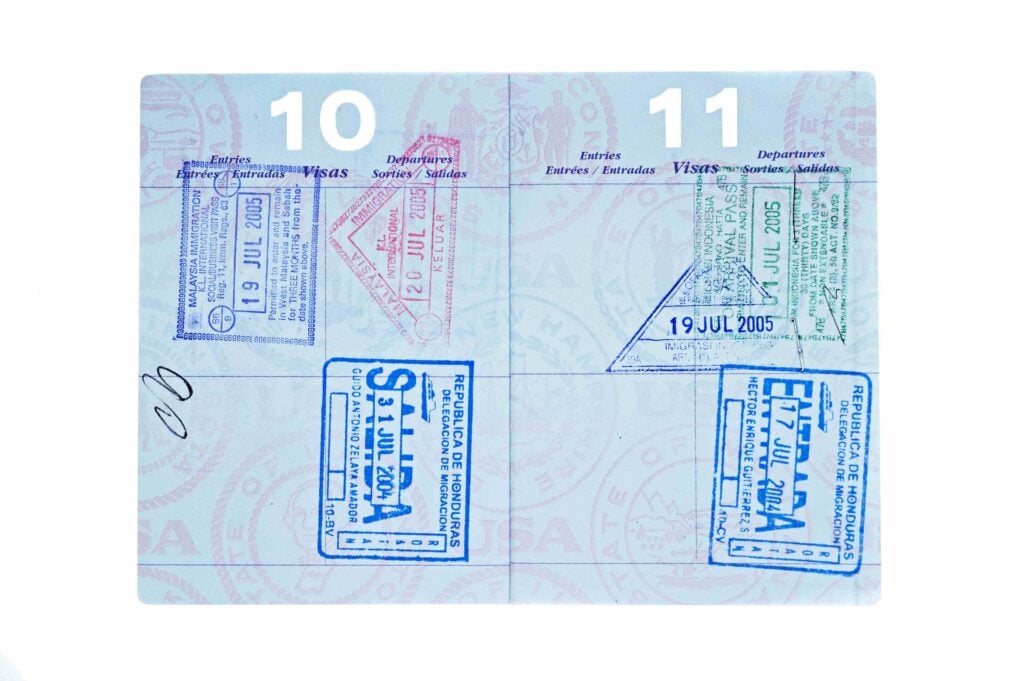In September of 2023, the Indonesian government announced that it would be introducing a new tourist tax but what does that mean and how will it affect travellers to Bali?
We explain how this isn’t as much of an issue as some people are making it out to be and what you can expect when you arrive in the country.
About The New Tourist Tax

From the 14th of February, 2024, there will be a new tourist tax on all arrivals in Indonesia, for tourism purposes, and that means paying 150,000 IDR (roughly $14-$15 AUD depending on the exchange rate) for each person entering the country.
This can be paid at the airport, but the government is recommending that tourists visiting Indonesia don’t wait to pay the tourism tax at the airport and instead, make payment for the new tourism tax online.
The Love Bali Website
With that in mind, they’ve set up the Love Bali Website (you can find Love Bali here) for you to pay the tourist tax on and soon you will find apps in the Apple app store and Google Play store to help facilitate payment too.
You can pay by bank transfer, Qris, or virtual account on the web store and if you really can’t manage to pay online, you can pay by card (but not cash) at Benoa Bali Harbor or I Gusti Ngurah Rai International Airport.
However, with the government urging visitors to pay in advance, we’d hit the website and pay in advance if at all possible, otherwise, foreign tourists entering Bali are likely to find themselves in big queues at the airport.
Exemptions To The Tax

There are several exemptions from this tax and they include corporate investors, people here to conduct government business (diplomatic and official visa), golden and student visa holders, and official visa holders for business and other non-tourism purposes (those with a residence permit card, for example).
What Is The Tax For?

The levy on international tourists is meant to help raise funds to help preserve the island’s natural environment, encourage the tourism and creative economy, and improve infrastructure on land/sea, to help your future trip to Bali be as pleasant as the one you take today.
Why Is This Not Such A Big Deal?
While $15 per person for a family of four amounts to $60, an appreciable sum of money, even in 2024, most reports have neglected to mention that until recently Australians had to pay $50 per person for a visa on arrival, a $200 cost for a family of four.
That $50 payment is no longer required. So, Bali visitors have essentially saved $140 compared to the same time last year.
FAQs
How Much Is The Tax To Enter Bali?
As of February 2024, each tourist entering Bali must pay 150,000 IDR to enter the country. There is no tax for entry for those on non-tourist visas.
Do You Need To Pay A Departure Tax In Bali?
No, but not because there is no tax, it’s just built into the cost of your airline tickets, so there’s no need to make a separate payment at the airport as you’ve already paid it.
Is There A Fee To Enter Bali?
There are, potentially, two fees to enter Bali – the first is the cost of a visa on arrival (though for most nationalities if you want to stay less than 30 days, you may recieve a free visa exemption and, of course, if you have a visa already you don’t need to pay this fee) and the second, from February 2024, will be a tax on tourists of 150,000 IDR per person (non-tourists do not need to pay this tax).
Is There An Arrival Tax In Bali?
This is no official “arrival tax” in Bali but there will be a tourist tax from February 14, 2024, of 150,000 IDR for each arriving foreign tourist.
Is There Airport Tax In Bali?
Yes, there are airport taxes in Bali, but there is nothing that you need to pay at the airport for this. Airport taxes are included in your flight ticket prices.
Bali visitors are going to have to pay a small tax for entering the country from February 2024, however, as this is a much smaller sum than the previously mandatory visa-on-arrival fee for Australians, tourists are still coming out ahead on the deal.
Non-tourist visa holders won’t be affected by the levy as it’s only for foreign tourists.
If the levy helps in the way that the Balinese government have laid out then we’re cautiously optimistic that this tax is a net positive for Bali and for holidaymakers.












